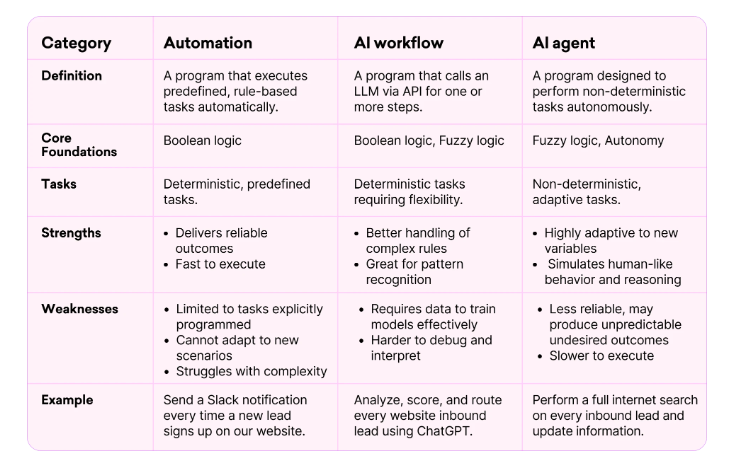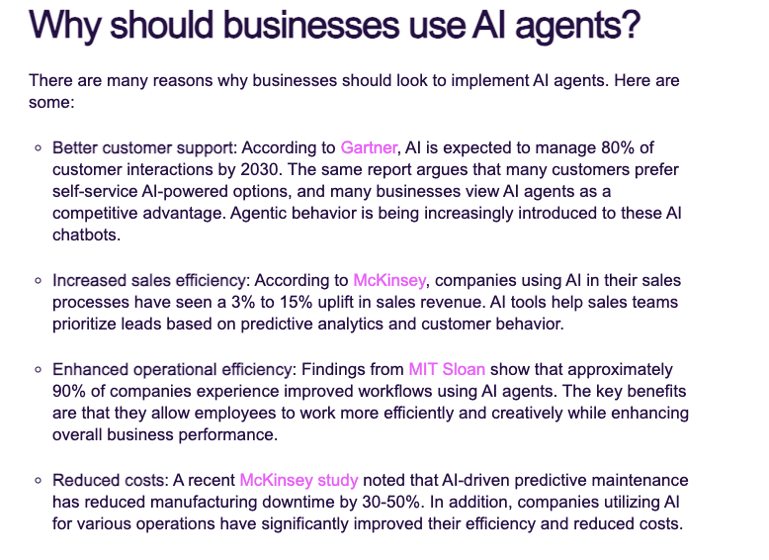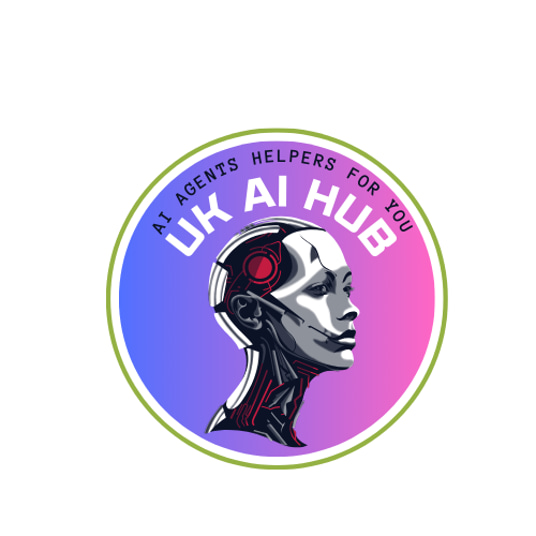What is an AI Agent? A Comprehensive Guide for Small Businesses
Artificial Intelligence (AI) is no longer a futuristic concept—it’s here, and it’s transforming how businesses operate. One of the most exciting developments in this space is the rise of AI agents. These intelligent tools are revolutionizing workflows, enhancing efficiency, and enabling businesses to focus on what truly matters. At Ukaihub, we’re passionate about helping small businesses harness the power of AI agents to drive growth and innovation. In this blog post, we’ll explore what AI agents are, how they work, and why they’re a game-changer for businesses of all sizes.
3/10/20253 min read


What is an AI Agent?
An AI agent is a digital tool designed to perform tasks autonomously based on data inputs or triggers. Unlike traditional automation, which follows static rules, AI agents can adapt to changing contexts, learn from feedback, and make decisions in real-time. This adaptability makes them incredibly powerful for businesses looking to streamline operations and improve decision-making
For example, while traditional automation might send a notification when a specific condition is met, an AI agent can analyze the situation, determine the best course of action, and execute it without human intervention. This ability to think and act independently sets AI agents apart from other forms of automation
Types of AI Agents
AI agents come in various forms, each suited to different business needs. Here’s a breakdown of the most common types:
Basic Task Agents: These agents follow simple rules and triggers. For example, a smart home device like Amazon Alexa turning on lights at sunset is a basic task agent 1.
Memory-Based Agents: These agents remember past interactions and use this information to refine future decisions. A robot vacuum cleaner that learns high-traffic areas in your home is a great example
Goal-Oriented Agents: These agents work toward achieving a specific goal. For instance, a chess AI like Stockfish determines the best moves to win the game.
Utility-Based Agents: These agents weigh various factors to maximize efficiency. Uber’s surge-pricing model, which adjusts ride costs based on demand, is a utility-based agent
Learning Agents: These agents continuously learn and refine their behavior based on experience. ChatGPT, which improves its responses based on user feedback, is a learning agent .
How AI Agents Work
AI agents operate through a continuous cycle of perception, action, and learning. They perceive their environment through sensors or data streams, analyze the information, and take action based on their programming and goals. This process often involves interacting with external systems, retrieving information, and executing tasks autonomously.
Many AI agents leverage machine learning algorithms to adapt and improve their performance over time. This learning capability enables them to achieve their objectives more efficiently and effectively 1.
Why Should Businesses Use AI Agents?
The benefits of AI agents are vast, making them a valuable asset for businesses. Here’s why your business should consider implementing AI agents:
Better Customer Support: AI agents can handle up to 80% of customer interactions, providing quick and accurate responses. This not only improves customer satisfaction but also frees up your team to focus on more complex tasks 1.
Increased Sales Efficiency: AI agents can prioritize leads based on predictive analytics, helping sales teams focus on high-potential opportunities. This can lead to a 3-15% increase in sales revenue 1.
Enhanced Operational Efficiency: By automating repetitive tasks, AI agents allow employees to work more creatively and strategically. Studies show that 90% of companies experience improved workflows with AI agents 1.
Reduced Costs: AI-driven solutions, such as predictive maintenance, can reduce manufacturing downtime by 30-50%, significantly cutting operational costs 1.
Real-World Applications of AI Agents
AI agents are already making waves across industries. Here are some examples of how they’re being used:
E-commerce: AI agents power personalized product recommendations, increasing engagement and conversion rates
Healthcare: AI agents streamline appointment scheduling, freeing up administrative staff to focus on patient care
Human Resources: AI agents can automate candidate screening, reducing recruitment times and improving hiring efficiency
Finance: AI agents monitor compliance and detect fraud, improving accuracy and reducing risks
How Ukaihub Can Help
At Ukaihub, we specialize in helping small businesses integrate AI agents into their workflows. Our solutions are designed to be accessible, cost-effective, and impactful. Here’s how we can support your business:
Tailored AI Solutions: We provide customized AI agent solutions that align with your business goals and needs.
Seamless Integration: Our team ensures that AI agents integrate smoothly with your existing systems, minimizing disruption.
Ongoing Support: We offer continuous support and training to help your team make the most of AI agents.
Scalability: Our solutions grow with your business, ensuring long-term success.
Conclusion
AI agents are transforming the way businesses operate, offering unprecedented levels of efficiency, cost savings, and innovation. By adopting AI agents, small businesses can compete with larger players and achieve sustainable growth.
At Ukaihub, we’re here to guide you every step of the way. Whether you’re looking to enhance customer support, streamline operations, or boost sales, our AI agent solutions can help you achieve your goals.
Ready to take your business to the next level? Contact Ukaihub today and discover the power of AI agents.




